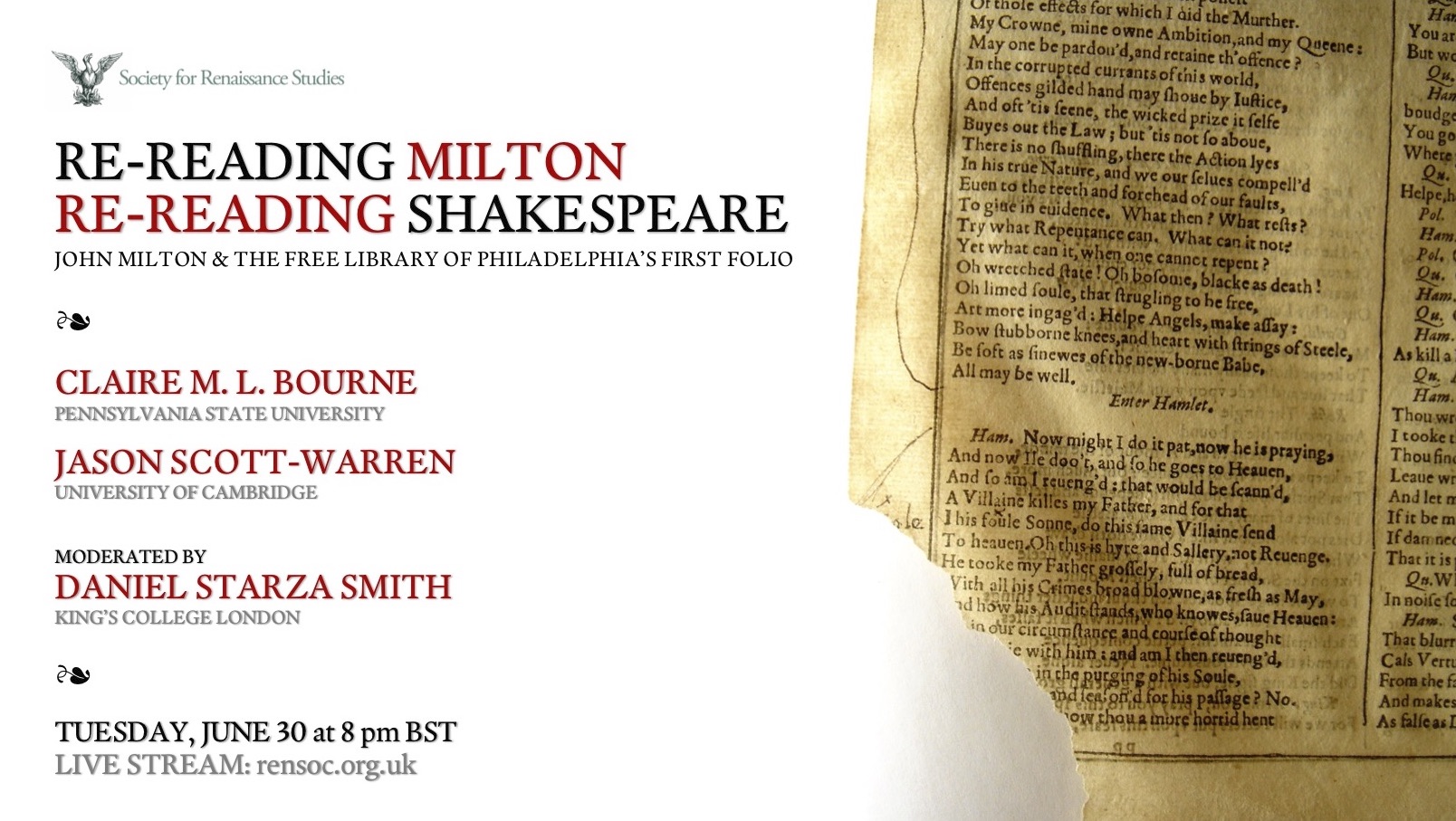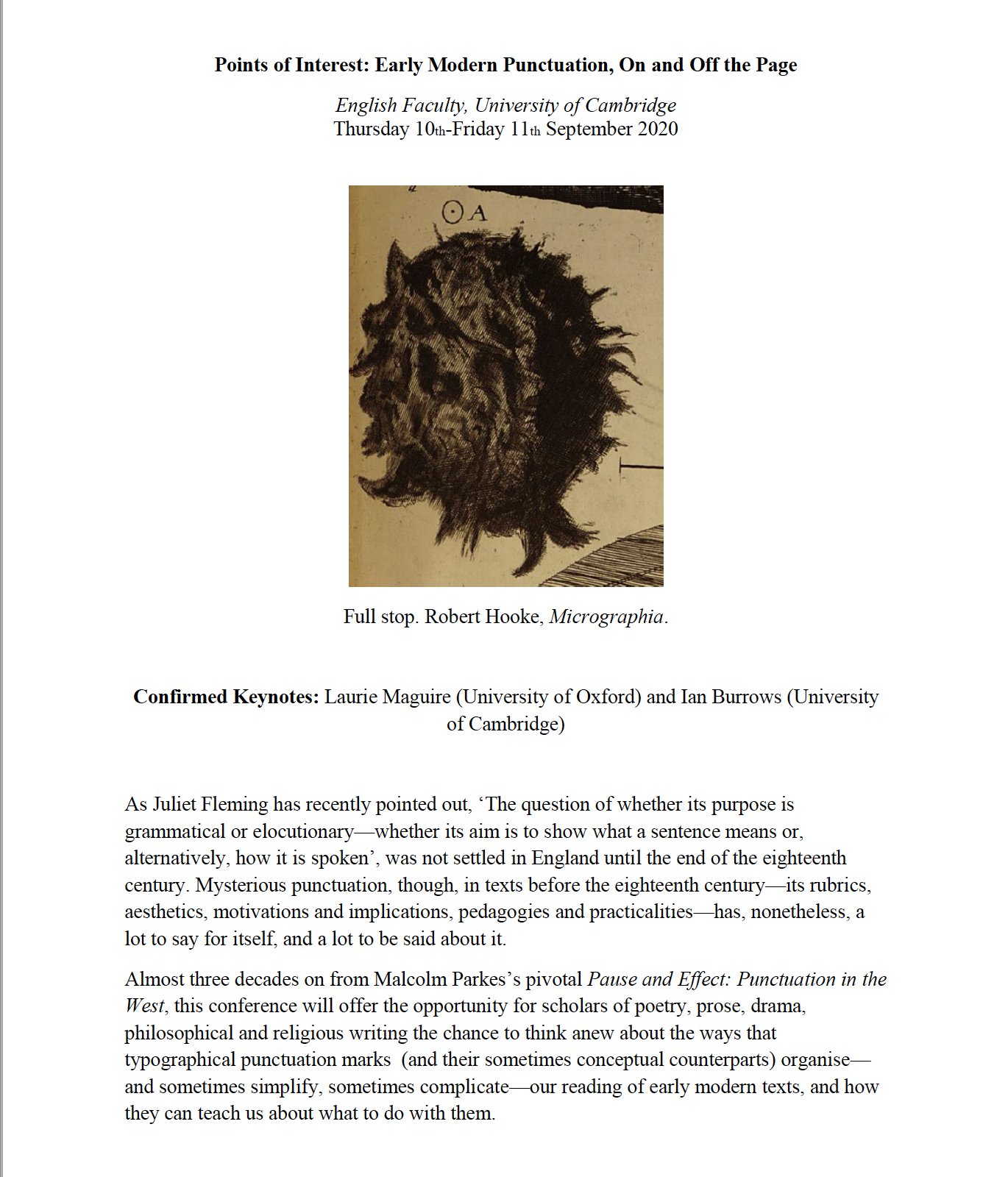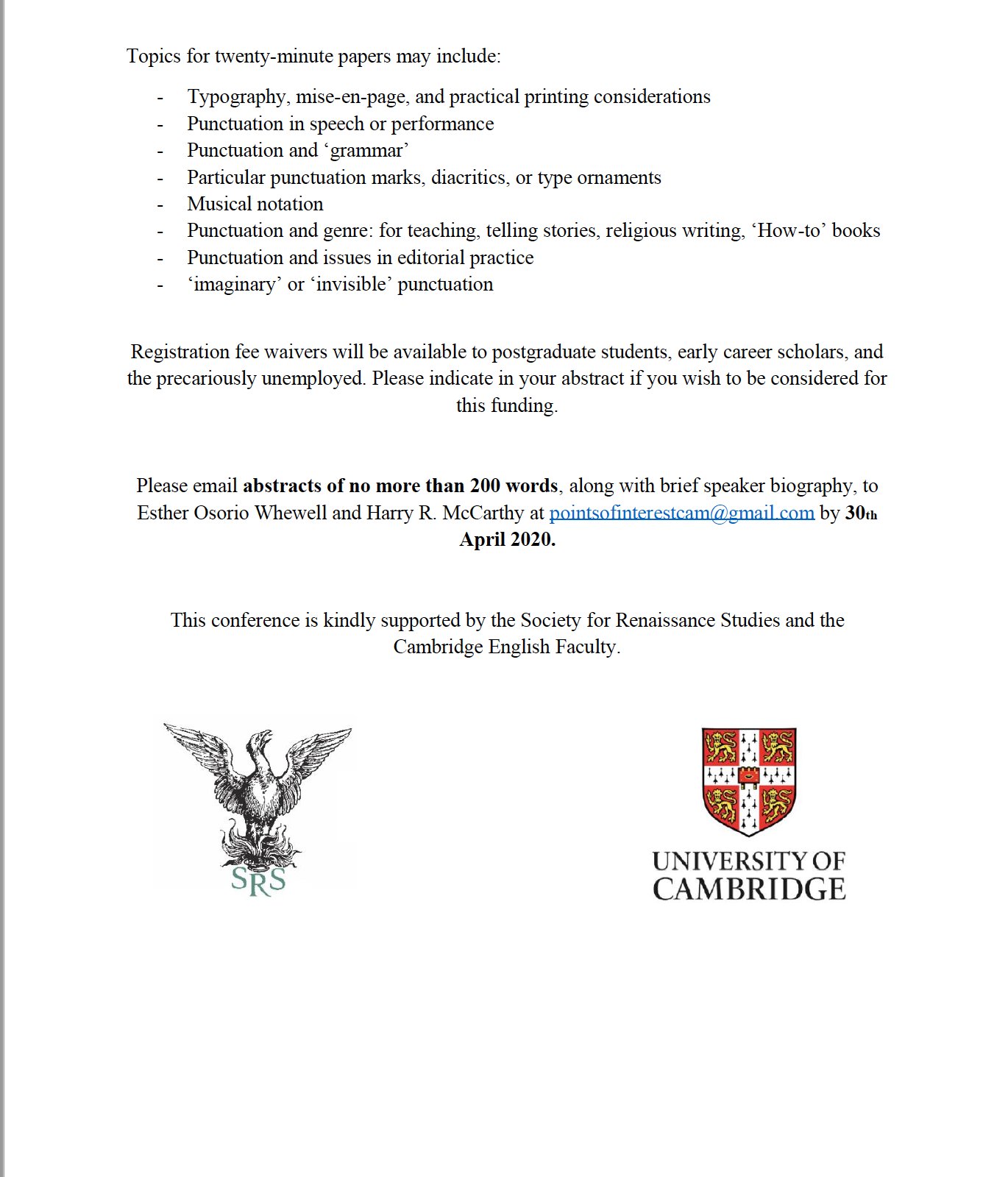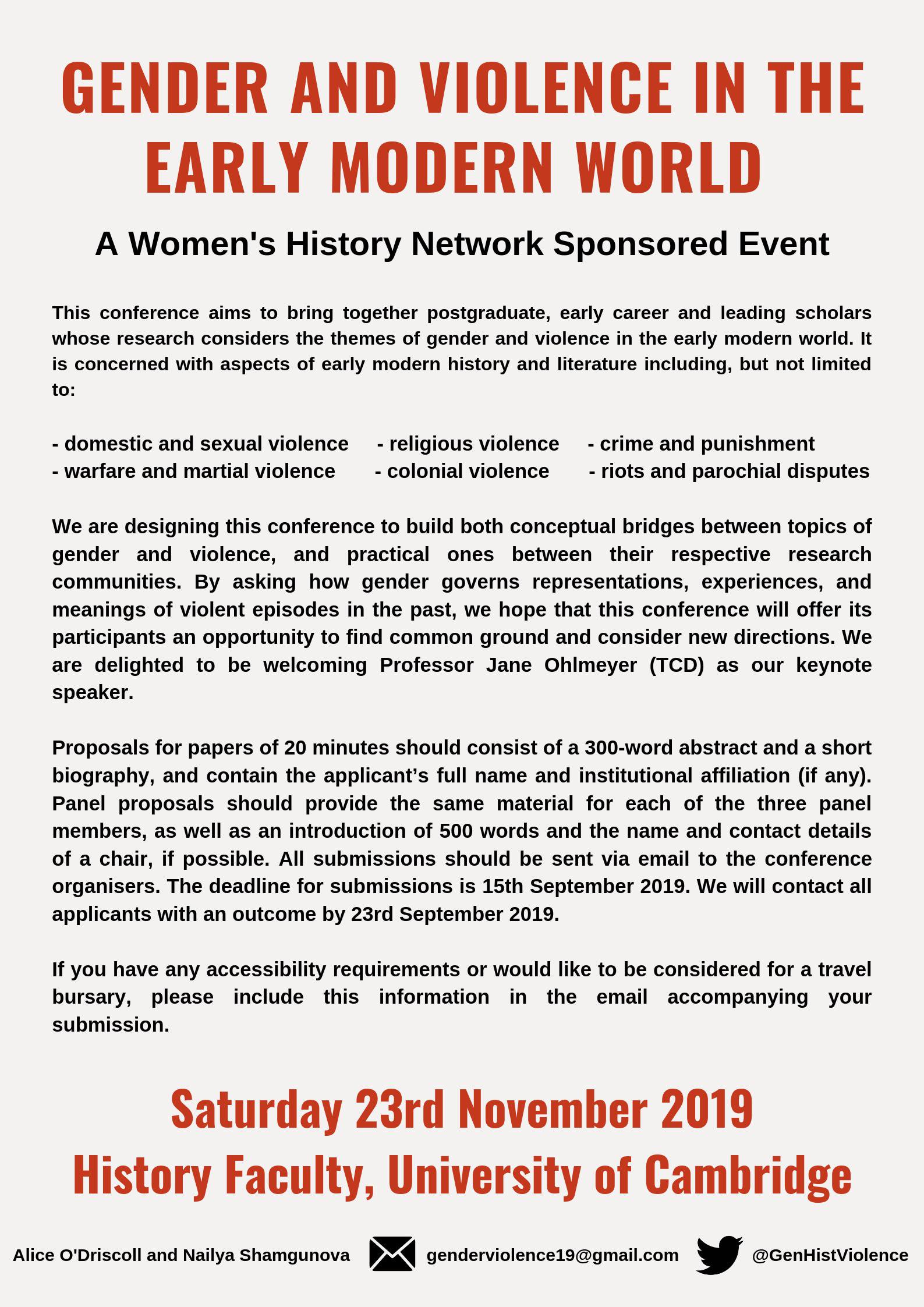We have been circulating news by other means recently but we hope to bring this page back to life before too long.
Author Archives: admin
Burghley Visiting Fellowship
Applications are now open for Burghley Visiting Fellowship, which is intended to support and promote research into the lives and activities of William Cecil, Lord Burghley, and Mildred Cecil, Lady Burghley, and the worlds in which they lived. It provides an opportunity for those actively engaged in research in this area to spend up to two terms resident at St John’s College, Cambridge, pursuing archival research and/or completing a project. Fellows will also be welcome to spend time working in the Archives at Hatfield House.
This is a non-stipendary fellowship. The Burghley Visiting Fellow will be provided with accommodation and meals in College and an additional allowance to cover travel and books. They will be expected to remain in residence in Cambridge and to actively participate in college life for the duration of the Fellowship.
Applications will be considered from staff of any university or other institution of higher learning, and from other suitably qualified persons who wish to carry out scholarly work in Cambridge. Applications are welcome from both UK and overseas candidates. The Fellowship is not intended to support those completing PhD theses but early career scholars are encouraged to apply.
It is proposed that the first Fellow will take up residence in January 2021; applicants should confirm that this is possible for them and whether they wish to spend one or two terms in Cambridge. Arrangements are, of course, subject to any further developments regarding Covid-19 which might affect travel or accommodation.
To find out more about this fellowship and how to apply, please visit the following page: http://www.lordburghley500.org/fellowship.html.
Re-Reading Milton Re-Reading Shakespeare
On Tuesday 30th June, Jason Scott-Warren (Cambridge) and Claire M. L. Bourne (Pennsylvania State University) will be discussing their new findings regarding John Milton and The Free Library of Philadelphia’s First Folio. Register for the event and join the live stream at the following link: https://www.crowdcast.io/e/re-reading-milton-re/register.

RSA Dublin 2021: Call for Submissions
Submissions are now open for the 67th Annual Meeting of the Renaissance Society of America, which is due to take place in Dublin on 7-10 April 2021. Find out more about the submission timeline and the Calls for Papers at the following link: https://www.rsa.org/page/RSADublin2021.
CfP: Points of Interest


If You Don’t Know, Just Ascham
By Micha Lazarus
It’s just one damned thing after another in Reformation England, as I’ve found in my recent work on the major sixteenth-century English humanist, Queen Elizabeth’s childhood tutor, Roger Ascham. Ascham and his friends in the extended circle of St John’s College, Cambridge, sit at the intersection of many of my interests: Greek learning, the history of criticism, neo-Latin drama, and the broad reach of classical reception. So it was a pleasure, when I was invited by Lucy Nicholas and Ceri Law last year to contribute to a volume of essays on Roger Ascham and his Sixteenth-Century World, finally to get around to writing about his famous educational manual, The Scholemaster (1570).
I had always been struck by how much of the Scholemaster is not precept at all, but a kind of intimate personal memoir of Ascham’s life and friendships. Ascham seems to me to talk about education as a means of talking about his dear friends, such as John Cheke and William Cecil—or perhaps, when he talks about his friends, it’s a means of talking about the precepts enshrined in the example of their lives. ‘The Scholemaster’s Memories’ tries to tease out this dynamic transmutation between teachers and lessons, people and books, at the heart of humanist biography, situating Ascham’s manual in the tradition of Greek funeral oratory and exploring the way he constructed intimacy with friends distant, or long-dead, in words.
Now, I never planned to work on book history, but at some point snuffling around in libraries turned into a kind of therapy. Most of the time I live amid piles of things I’m supposed to read, but the stacks are like a box of crumbling, leather-bound chocolates: you never know what you’re going to get. Besides, if I want to find out what people really thought, annotated books are one of the only forms of truly private writing to be found in the sixteenth century. And just a few months before I started on ‘The Scholemaster’s Memories’ I had unearthed a gorgeous, filthy truffle in the UL: an annotated Greek Aristotle from 1539, inscribed every which way by ‘Thomas Conyers’ and also by his older cousin and college tutor, ‘Rogerus Aschamus’.
This volume sat in Ascham’s rooms at St John’s until the mid-1540s, when it was sold to another fellow, Richard Whyte, and passed through Thomas Oliver, a Cambridge-trained physician, to King Edward VI School in Bury St Edmund’s—only to return to Cambridge in 1970 when the school donated its historic library to the UL. Ascham’s biography, written in 1963, lists a single book owned and annotated by Ascham. Now there were two—and maybe more. A new hunt was on.
I spent the spring on a fellowship at the Folger Shakespeare Library in Washington D.C., but once I got back the summer was devoted to snuffling ecstatically around libraries in London, Cambridge, Manchester, and Glasgow, from Shrewsbury School to Hatfield House. At final count I’d pinned down sixteen volumes, containing twenty-two individual works, owned and annotated by Ascham, and by following cross-references he’d written in the margins I could deduce the existence of at least three more. There was Ambrose, Aristophanes, Aristotle (twice), Callimachus, Demosthenes (twice), Diogenes Laertius, Dionysius of Halicarnassus, the Greek epistolographers, Hermogenes, Hesychius, Isocrates, and a whole second half of the alphabet you can find in the handlist I wrote up. Lucy and Ceri (and their publishers at Brill) showed titanic generosity in allowing me to add it to their volume as a last-minute appendix of 4,000 words, outstripped only by their olympian forebearance when it turned out almost three times that length.
The best part was that several of these unique volumes complemented my sense of Ascham as someone for whom books and people were in some sense commutative. Friendships consisted in shared reading, and books bore the intimacy of those through whose hands they passed. The largest concentration of Ascham’s books resided at Hatfield House, the ancestral home of the family headed by his friend and supporter William Cecil; in that collection was a Greek New Testament Ascham had passed to his wife Mildred Cecil. A volume at St John’s, Cambridge, was given to Ascham by John Cheke, his teacher and guide, with a touching note of mutual friendship. Another at Shrewsbury was previously owned by John Redman, a Hellenist and theologian for whose warmth and learning Ascham was grateful throughout his life. An extraordinary copy of Isocrates accompanied Ascham around Germany in the train of Sir Richard Morison around 1550, and eighteen years later was the subject of a tutorial he gave Queen Elizabeth just six weeks before he died. These books preserved the concrete traces not only of the private thoughts of a sixteenth-century humanist, but the warp and weft of learned community.
And now it’s back to what I’m supposed to do: polishing up an essay on Sophocles in the Reformation (forthcoming in Renaissance Quarterly, summer 2020), preparing a talk on the Greek pronunciation controversy of 1540s Cambridge (one of my favourite controversies), finishing a book on Aristotle’s Poeticsin Renaissance England, curating two collections of essays with Vladimir Brljak on the long history of poetics before the eighteenth century, working up a second book on the remarkable library catalogue of Alexander Nowell, and most of all getting enough toe-time with my own dear, lifelong friends’ baby daughter. But I’ve made sure I’ll be giving a talk about that Isocrates in April. You never know what you’re going to get.
Renaissance Graduate Seminar, 2019-20
This year’s programme is now available at
https://www.english.cam.ac.uk/seminars/rgs/
CfP: Gender and Violence in the Early Modern World

Baroque Latinity: Call for Papers

“In Bad Taste”: The Cambridge Annual Graduate Conference in pre-1750 Literature.
English Faculty, 12 April 2019
Conference Programme:
Welcome remarks (10.20 – 10.30)
Panel 1: Taste and Sex (10.30 – 11.30)
Chair: Savannah Pine
Sarah Kennedy, “‘You should think love like Homer’s moly, a white leaf and a black root, a fair show and a bitter taste’: Sweet, Sour and Unsavoury Desires in John Lyly’s Comedies”
Kate Kinley, “Sex and Sugarplums: Sickly Excess in Shirley’s The Lady of Pleasure”
Laura Pupo Cheng, “Discourse Community in CUL Ii. vi. 33: Reading Shame and Disgust in 15th and 16th-century Gynaecological Treatises”
Break: 11.30 – 12.00
Panel 2: Women, Cults, and the Occult (12.00 – 12.45)
Chair: Joel Lipson
Louise Naude, “Editing Demon Porn: Merlin’s Conception in Geoffrey of Monmouth and Wace”
Rebekah Lippens, “Inverting the Eucharist: Christina the Astonishing, Mendicancy, and Gendered Control”
Lunch: 12.45 – 14:00
Panel 3: Bodies and Revulsion (14.00 – 15.00)
Chair: Rebekah Lippens
Sarah Lesley, “Jonson’s Bad Classicism: Epicurean Caricatures, Misreading, and Scatologic Materialism in The Alchemist”
Catherine Newman, “The Tasteless Adventures of Christian Davies: Woman Warriors and the Disgusting Ideology of Sport”
Lucy Smith, “Medieval Leprosy, Boils and Bloodbaths”
Break: 15.00 – 15.30
Panel 4: The Aesthetics of the Canon (15.30 – 16.30)
Chair: Louise Naude
Ruilin Fan, “Margaret Cavendish and ‘Badness’”
Hannah Burke-Tomlinson, “Innovation through Transgression: Ovid’s Abortive Materia in Amores 2.13 and 2.14”
Katie Mennis, “Taste the Difference? Reading ‘Bad’ Love Poetry ‘Aright’”
Break (with afternoon snack): 16.30 – 17.00
Keynote: 17.00 – 18.00
Dr Raphael Lyne
Closing Remarks (18.00 – 18.15)
Drinks: 18.15 – 18.45
Dinner: 19.00 (at The Copper Kettle restaurant)



